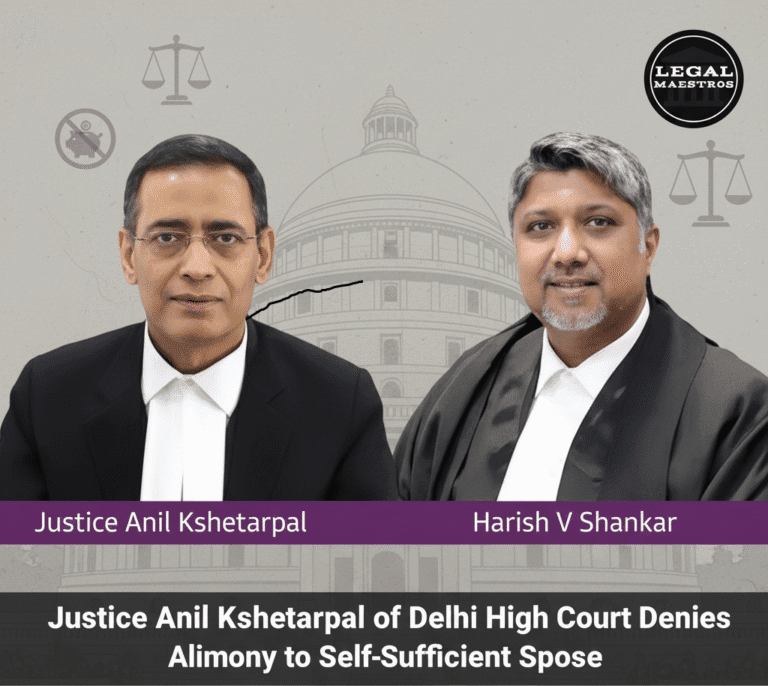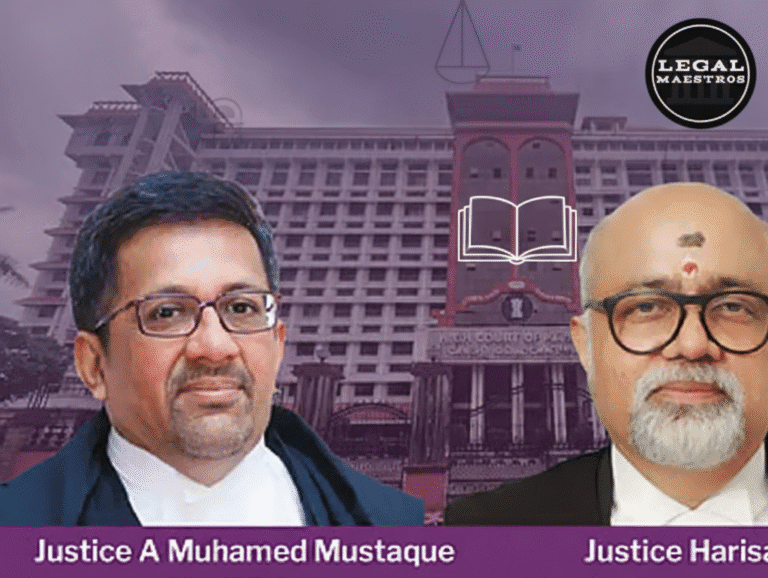
A well-known YouTuber named Jyoti Malhotra was taken into custody by the authorities in Hisar, Haryana, in the middle of May 2025, on suspicions of espionage. She attracted hundreds of thousands of fans to her channel, which was called “Travel with JO,” because it contained videos from all around India and other countries.
Her activities in critical zones were intercepted by intelligence agencies, which led to the discovery of purported contacts with Pakistani operatives. This led to her detention. The charges are extremely serious, as evidenced by the fact that the National Investigation Agency and the Intelligence Bureau are both involved in the investigation.
As the case progresses, issues arise over the manner in which a digital influencer became involved in allegations of spying, the evidence that the state possesses, and the manner in which India’s law requirements for dealing with confidential information are applicable.
For any queries or to publish an article or post or advertisement on our platform, do call at +91 6377460764 or email us at contact@legalmaestros.com.
For More Updates & Regular Notes Join Our Whats App Group (https://chat.whatsapp.com/DkucckgAEJbCtXwXr2yIt0) and Telegram Group ( https://t.me/legalmaestroeducators )
Historical Context of the Case
Jyoti Malhotra, who is now 33 years old, began her journey on YouTube in 2011 and quickly climbed to notoriety by sharing her life experiences while traveling throughout South Asia. Her on-the-ground insights from faraway locations provided audiences with a great deal of appreciation.
Even if her supporters were unaware of it, security authorities had been keeping an eye on her ever since she traveled to Kashmir and Ladakh at the beginning of 2025. According to these reports, she traveled to Pahalgam, Gulmarg, Dal Lake, and Pangong Lake, all of which are located close to the border with China, in order to film at restricted zones and military sites.
For any queries or to publish an article or post or advertisement on our platform, do call at +91 6377460764 or email us at contact@legalmaestros.com.
The excursions in question gave rise to suspicions that her content was more than casual tourism overviews, which in turn prompted law enforcement agencies to conduct a more in-depth investigation.
Felony and arrest charges
Malhotra was brought into prison by the local police on May 16 when he was at his residence in New Aggarsain Extension, Hisar. The event occurred in response to a complaint that was filed by a sub-inspector.
She was arrested for espionage activities and charged with violating Sections 3 and 5 of the Official Secrets Act, which prohibit the unlawful handling or distribution of sensitive government information. Additionally, she was charged with violating Section 152 of the Bhartiya Naya Sanhita.
For any queries or to publish an article or post or advertisement on our platform, do call at +91 6377460764 or email us at contact@legalmaestros.com.
Documents, digital devices, and travel records were among the items that were taken by law enforcement at her apartment during the search. After being remanded to police custody until the 22nd of May, Malhotra is currently being questioned by central agencies for additional information.
Alleged Connections to Pakistan
During a trip that was planned by commission agents in 2023, Malhotra allegedly made connections within the Pakistan High Commission in New Delhi, according to the statements made by the investigators. She is claimed to have gained access to restricted areas with the assistance of a person who goes by the name “Danish,” who is apparently a member of the commission’s personnel.
It is believed that she continued to communicate with others using encrypted messaging apps such as WhatsApp, Telegram, and Snapchat after she returned to India. Analysis of the finances reveals that money was transferred to accounts that are associated with Pakistani agents. The information presented here suggests that she may have been a part of a larger network that provided handlers on the other side of the border with location intelligence.
For any queries or to publish an article or post or advertisement on our platform, do call at +91 6377460764 or email us at contact@legalmaestros.com.
The Functions of the NIA and the IB
After she was taken into custody, teams from the National Investigation Agency and the Intelligence Bureau took over her interrogation, and they collaborated with officials from the Military Intelligence. In order to construct a complete picture of her suspected espionage ring, the authorities are investigating her digital trail, as well as her financial transactions and travel history.
Officials are tracing relationships between social media influencers, local informants, and foreign operatives, and they are coordinating investigations in adjacent states where other individuals have been apprehended. The method that makes use of many agencies emphasizes the complexity of the situation as well as the strategic significance of the information that is transmitted from sensitive zones.
The provisions of the Official Secrets Act
The Official Secrets Act, which was initially passed in 1923 and continued to be in effect after independence, is a piece of legislation that criminalizes the theft, possession, or dissemination of information that is judged to be of critical importance to the nation’s security.
For any queries or to publish an article or post or advertisement on our platform, do call at +91 6377460764 or email us at contact@legalmaestros.com.
Both Section 3 and Section 5 include penalties, which might include incarceration as well as fines. Documents belonging to the government, defense sites, and sensitive information are all subject to the law’s broad scope.
When these provisions are taken into consideration, even the act of recording or photographing restricted areas without prior authorization might be considered an infraction. As far as Malhotra is concerned, footage from border regions where there is a considerable military presence might be considered to fall fully within the jurisdiction of the Act.
The Investigation and the Evidence
Notebooks, flash drives, and mobile phones were found by the authorities during their searches of Malhotra’s apartment. These devices had detailed notes and geographical coordinates that corresponded to strategic locations.
For any queries or to publish an article or post or advertisement on our platform, do call at +91 6377460764 or email us at contact@legalmaestros.com.
Her communications with Pakistani contacts are being tracked by cyber forensic teams, which are currently recovering chat logs, call records, and deleted messages from her computer. The fact that her YouTube and Facebook channels are still accessible online despite the suspension of her Instagram account makes it more difficult to ensure that evidence is preserved.
Moreover, investigators are interviewing colleagues, one of them is an information technology officer who is connected to a religious management committee. The gadgets that were taken for forensic investigation belong to this official.
Procedures in the Courts
Malhotra’s legal team intends to contest the legality of the first information report (FIR) and appeal for bail, stating that her travels were made in good faith for the purpose of content creation, after the initial remand occurs.
For any queries or to publish an article or post or advertisement on our platform, do call at +91 6377460764 or email us at contact@legalmaestros.com.
The mere act of filming in public places, according to their argument, does not constitute espionage. Nevertheless, it is quite probable that the prosecution would place an emphasis on the sensitive nature of the locations that were visited as well as her alleged coordination with foreign agents.
In order to determine whether to award interim relief or to support continuing detention in accordance with rigorous secret-information regulations, the court must strike a balance between the rights of individuals and the imperatives of protection of national security.
influence on influential people on social media
As a result of Malhotra’s arrest, shockwaves have been thrown across the influencer network. Vloggers who chronicle their travels, in particular, are now subject to more scrutiny when they video in restricted or border areas. Some platforms may alter their content policies in order to warn authors about potential legal issues.
For any queries or to publish an article or post or advertisement on our platform, do call at +91 6377460764 or email us at contact@legalmaestros.com.
The agencies are expected to increase their monitoring of social media in order to identify posts coming from vulnerable places, according to observers. As a result of this case, influencers are being prompted to reevaluate their travel plans and ensure that they are in compliance with security requirements. The case highlights the delicate line that exists between lawful content creation and unauthorized intelligence collecting.
Possible Consequences for National Security
The alleged espionage ring that is focused around Malhotra is indicative of the expanding strategies employed by foreign intelligence organizations, which involve utilizing figures from social media platforms in order to obtain open-source intelligence.
Methods like these take use of the fact that travel content appears to be harmless in order to conceal spying operations. With regard to India, this trend gives rise to concerns regarding the leaking of information from frontiers and regions that are prone to conflict. For the purpose of combating these hidden dangers, it is essential to strengthen legal detentions and surveillance, improve training for content makers on banned regions, and increase collaboration between security services and technology platforms.
For any queries or to publish an article or post or advertisement on our platform, do call at +91 6377460764 or email us at contact@legalmaestros.com.
The mystery surrounding Jyoti Malhotra is an example of how internet media, travel content, and contemporary espionage have come together. On the other hand, security agencies have a responsibility to protect themselves from being used by hostile entities while vloggers capture cultures and landscapes.
During the course of the ongoing investigations conducted by the NIA, IB, and MI, the courts will evaluate the technical evidence in light of the constitutional safeguards. In addition to the human repercussions, the story brings to light the necessity of establishing clear boundaries for content providers who work in close proximity to strategic places. Within the context of the pervasiveness of online reporting, striking a balance between the imperatives of national security and creative expression continues to be a persistent difficulty.




